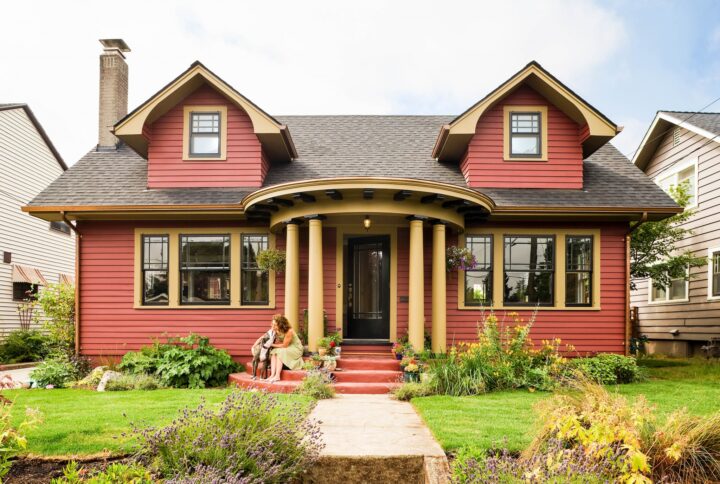What Are Cash Reserves for a Mortgage?
Do you need cash reserved to qualify for a mortgage? Find out what cash reserves are and when you need them.


Written by Alycia Lucio on March 21, 2025
Reviewed by Neil Swanson, Edited by Jessica Rapp
Some lenders may require you to have cash reserves for a mortgage to ensure you can continue to make mortgage payments in the event of financial hardship. Cash reserves, also known as mortgage reserves, must be readily accessible funds you have in a bank account or similar. Assets that can be liquidated by sale, Certificate of Deposits (CDs) and gift funds may also be acceptable forms of cash reserves. However, physical cash you have on-hand is typically not accepted.
If cash reserves are required, lenders will ask you to provide proof of funds with bank statements or descriptions of your liquid assets before approving your mortgage. Unlike your initial earnest money deposit or closing funds, cash reserves are not applied to your mortgage. Instead, these funds are saved for a rainy day.
Keep reading to learn more about commonly accepted sources for cash reserves, when cash reserves are required for a mortgage, and how much you may need reserved.
Types of cash reserves
Each lender has their own qualifying criteria for mortgage cash reserves. However, most lenders prefer assets that can easily be converted to cash. Lenders typically accept funds that can be withdrawn from a bank account and assets that can be sold. Here are assets that qualify as mortgage cash reserves and assets that don’t.
Qualifying assets
- Checking accounts
- Savings accounts
- Money market accounts
- Certificates of deposit
- Stocks, bonds and mutual funds
- Eligible gifted funds
- Vested retirement savings, like a 401k
- Cash in vested life insurance policies
Non-qualifying assets
- Stock options
- Unvested retirement balances
- Funds from an unsecured personal loan
- Lender credits
- Money received from a third-party involved in the transaction (current homeowner, developer, agent, or lender)
- Money that you can't access until you retire or leave your job
When are cash reserves required?
Lenders usually ask for proof of cash reserves during the mortgage application process. Borrowers with strong credit scores and large down payments may not be required to have cash reserves at all. If they are required, it’s usually due to one of the following scenarios:
- Borrowers with credit scores below 700, a down payment of less than 20%, and/or a DTI ratio above 45%
- High risk loans (such as jumbo loans)
- Low equity financing situations (unsecured loans)
- Properties that are not primary residences
- Refinancing
Cash reserve requirements for mortgages
Mortgage cash reserves are measured in months. When a lender requires three months’ worth of cash reserves, this means you’d need to have at least three monthly mortgage payments in a savings account or other equivalent liquid asset.
The amount of cash reserves you’ll need depends on the type of property and mortgage loan.
Mortgage reserve requirements by property type
Here’s a table showing cash reserve requirements by property type.
| Property type | Cash reserve requirement |
|---|---|
| Primary residence | Up to 6 months |
| Second home | 2-4 months, or more |
| Investment property | 6 months, or more |
Mortgage reserve requirements by loan type
In addition to the type of property, you’ll need to consider cash reserve requirements for the type of loan you’re using to finance your home purchase. Here are some of the most common loan types used:
Conventional loans
Conventional loans are mortgages provided by private lenders to a wide range of borrowers. Cash reserves aren’t usually required for conventional loans unless the borrower is high-risk, pursuing a jumbo loan, or using the loan to finance a second property.
Here’s a table showing cash reserve requirements based on different financing scenarios.
| Financing scenario | Cash reserve requirement |
|---|---|
| Second home | 2-4 months |
| Cash-out refinances with DTI > 45% | 6 months |
| Investment properties | 6 months |
| Primary residences with up to 4 units | 6 months |
| Jumbo loan | 6-18 months |
FHA loans
FHA loans are mortgages backed by the Federal Housing Administration (FHA) that provide affordable and accessible home loans to low- to moderate-income borrowers. No cash reserves are required for 1-2 unit properties bought with a FHA loan. However, 3-4 unit properties require at least three months’ worth of cash reserves.
| Financing scenario | Cash reserve requirements |
|---|---|
| 3-4 unit properties | 3 months, or more |
VA loans
VA loans are mortgages insured by the Department of Veteran Affairs that offer U.S. military veterans, active-duty service members, and qualifying spouses competitive mortgages. VA loans only require cash reserves when borrowers use rental income from an existing property to qualify for a VA loan. Properties with 1-2 units require three months’ worth of cash reserves, while multi-unit properties require six months’ worth of cash reserves.
| Financing scenario (using rental income to qualify) | Cash reserve requirements |
|---|---|
| 1-2 unit properties | 3 months |
| Multi-unit properties | 6 months |
USDA loans
USDA loans are mortgages insured or offered by the Department of Agriculture that help low- to moderate-income individuals purchase homes in designated rural or suburban areas. There are no cash reserve requirements for USDA loans.
How much cash reserves should you have saved for a mortgage?
Borrowers may need to have two to six months worth of cash reserves to qualify for a home loan. The exact amount depends on your monthly mortgage payment and is determined during the underwriting process. However, if you’d like to estimate how much you might need to save before applying for a mortgage, consider the example below.
How to calculate cash reserves on a mortgage
Cash reserve requirements are calculated based on your monthly mortgage payments, which include the loan principal, interest, taxes, and insurance (PITI).
Let’s assume you purchase a $400,000 home at a 6.605% interest rate on a 30-year-fixed rate mortgage with a 10% down payment. Using Zillow's Mortgage Calculator, you’d end up with a monthly mortgage payment of $2,802.
If you’re buying a second home with a conventional loan, you might be required to have two to four months’ worth of monthly mortgage payments in cash reserves.
If your lender requires three months’ worth of cash reserves and your mortgage payment is $2,802, you’d multiply three by the dollar amount to calculate reserves:
$2,802 × 3 = $8,406
In this case, you’d need $8,406 in qualifying liquid assets to get approved.
Final thoughts on cash reserves for mortgages
It’s important to remember that if cash reserves are required, they’re not optional and must be presented to receive mortgage approval. You’ll need to show proof of liquid assets when you submit your mortgage application. You don’t need to include your cash reserves as part of your cash to close. You can chat with a loan officer to learn more or begin the mortgage application process with us at Zillow Home Loans*.
*An equal housing lender. NMLS #10287
How much home can you afford?
At Zillow Home Loans, we can pre-qualify you in as little as 5 minutes, with no impact to your credit score.
Zillow Home Loans, NMLS # 10287. Equal Housing Lender
Get pre-qualifiedHow much home can you afford?
See what's in reach with low down payment options, no hidden fees and step-by-step guidance from us at
Zillow Home Loans.
Zillow Home Loans, NMLS # 10287. Equal Housing Lender
Calculate your BuyAbility℠



